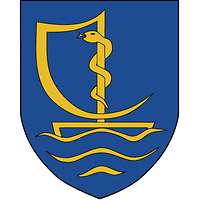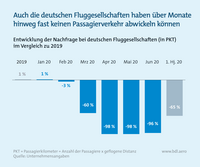
| The Newsletter of the German Air Line Pilots' Association Vereinigung Cockpit | No. 13 2020 |
 |
Dear Members,As announced in the last Waypoints, our Flight Safety department is currently focusing on mental health issues.
|
 |
Stressor CoViD-19 vs. flight safety - underestimated human factor?
When it comes to stressors, aviation encompasses a range of challenging and exceptional working conditions that have a significant impact on behaviour, motivation and the execution of work tasks (including time shifts, time pressure, environmental factors, absence from family).
This already wide range was expanded by the corona pandemic to include the stressor CoViD-19. It includes job and existential fears, isolation, health concerns in connection with relatives belonging to the risk group, uncertainties about test concepts or quarantine regulations in third countries. Recently, we have received an increasing number of inquiries in this regard, also with reference to the potential impact on flight safety. This influence should not be underestimated, as the consequences of stress can result in inattention, distraction and mental overload, which can ultimately lead to incorrect or omitted actions. It is not without reason that the human factor is considered a contributing cause in up to 80% of incidents and accidents, and it also plays a leading role in the VC flight safety concept.
The challenges that CoViD-19 brings with it as a human factor can be met individually and on the level of flight operations.
At the individual level, there is the possibility of actively addressing the challenges and to make use of coping measures, e.g. by using the Aviation Professional's Guide to Wellbeing of the Flight Safety Foundation. Peer support programs or the VC support line (+49 69 695976 222, more information in the box below this article) can also provide helpful support.
At the level of flight operations, it would not be unlikely and even understandable if the problem faded into the background due to the economically challenging situation in the aviation industry - the Production-Protection-Dilemma (Profitability-Safety-Dilemma) described in theory becomes more than tangible here. An established and integrated Safety Management System can be an excellent tool to counteract this dilemma by taking risk reduction measures within the framework of Safety Risk Management, by checking their effectiveness through the Safety Assurance Process and by sharing information about Safety Promotion and your Safety Reports in a timely manner. The way the commitment to flight safety from the Safety Policy is implemented and the quality of the prevailing safety culture can make the difference.
With all the economic challenges that need to be overcome, it should not be forgotten that times of crisis require increased attention on Flight Safety - and an increase in attention at all levels. This also includes us from the VC Flight Safety team.
Cockpit Crew Drug TestsRecently, we have received inquiries about "drug tests (tests for psychoactive substances)", which were carried out unannounced on crews before or after flight operations. In order to provide clarity, we would like to point out that tests for psychoactive substances on cockpit crews by the airline or the supervisory authority are legal and can take place at any time. This is regulated by law in the EASA Air Ops Regulation. |
GCAQE Cabin Air Quality WebinarThe Global Cabin Air Quality Executive hosts a 2-hour webinar on the most important topics related to air quality in the aircraft cabin on 15 and 16 September. It will cover regulatory aspects, airline risk assessments, current legal cases as well as technical issues such as the importance of air conditioning. |
 |
Schifffahrtmedizinisches Institut der Marine: work-related medical disorders in the mouth, jaw and face areaThe Schifffahrtmedizinisches Institut der Marine (Institute of Naval Medicine) is conducting a study in cooperation with the Center for Aerospace Medicine of the German Air Force and others, that analyses work-related medical problems in mouth, jaw and face of German divers, airmen and sky divers. The results are intended to benefit the aforementioned groups. |
Diploma Hochschule: Psychological support and stressorsA survey of the Diploma Hochschule (university of applied sciences) evaluates support options for mental health as part of a master thesis. The implementation of the recommendations of the EASA-led Task Force "Germanwings" as a consequence of the crash of Germanwings Flight 9525 is the background for the short questionnaire. The goal is to get a better picture of the mental support preferences and the most relevant stressors for aircrews. |
 |
Aviation Facts and Figures for the first Half of 2020The first half of 2020 was a disaster for German and global air traffic, according to recently published figures of the Bund der Deutschen Luftverkehrswirtschaft (BDL, German Air Transport Industry Association). According to the data, passenger kilometers in Germany fell sharply from mid-March onwards and then dropped almost to zero. Since June, a very slow recovery has been noticed.
|
News from Associations, Organisations and Regulators
ICAO
 |
We continuously strive to improve our newsletter and welcome your feedback. Please send comments and suggestions to presse@vcockpit.de or use the reply function of your mail programme. To stay up to date with the latest news, follow us on:





